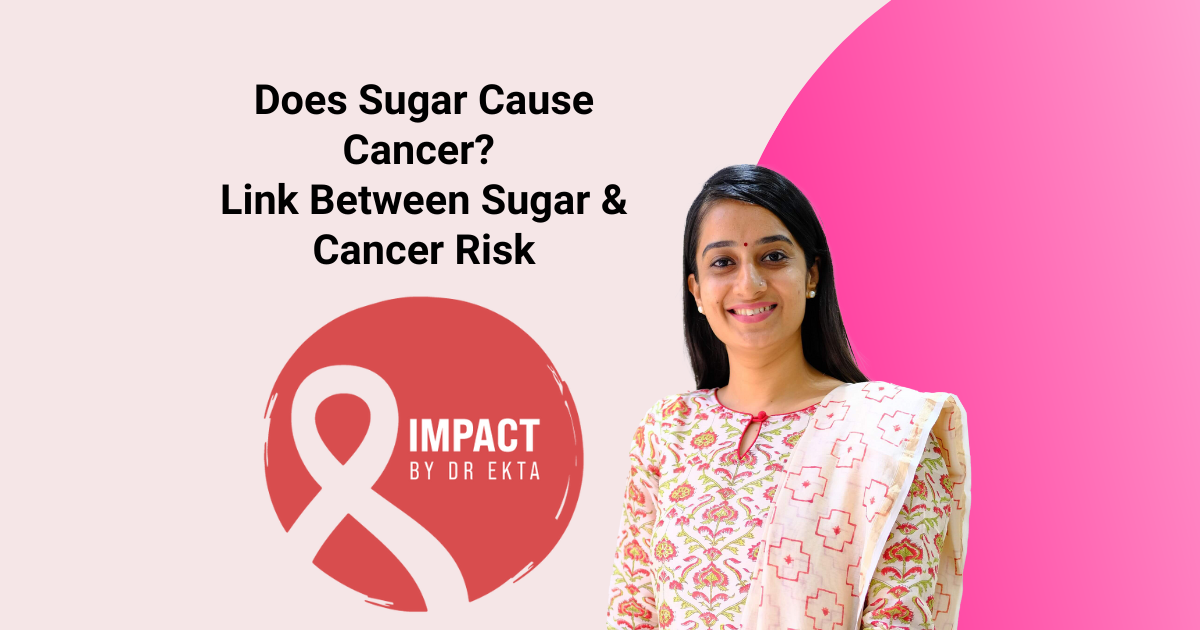Sugar is a fundamental part of our diet, but its role in cancer development has been a topic of widespread debate. Many people wonder, “Does sugar cause cancer?” While sugar itself may not directly lead to cancer, its excessive consumption can contribute to conditions that increase cancer risk. Understanding the connection between sugar and cancer is crucial for making informed dietary choices and maintaining overall health.
The Relationship Between Sugar and Cancer
Sugar, in its various forms, is the body’s primary source of energy. However, concerns arise when excessive sugar intake leads to obesity, insulin resistance, and chronic inflammation, all of which have been linked to cancer development.
- Cancer Cells and Sugar: Cancer cells require energy to grow and divide, and they consume glucose (a type of sugar) more rapidly than normal cells. This phenomenon, known as the “Warburg effect,” has led to the misconception that sugar directly fuels cancer growth.
- High Sugar Diets and Obesity: Consuming large amounts of sugar, particularly in the form of processed foods and sugary beverages, can lead to obesity, which is a known risk factor for several types of cancer, including breast, colorectal, and pancreatic cancer.
- Insulin Resistance and Inflammation: Excess sugar intake can cause insulin resistance, a condition where the body’s cells do not respond properly to insulin. This can lead to chronic inflammation, which plays a significant role in cancer progression.
Can Cutting Sugar Reduce Cancer Risk?
Reducing sugar intake may help lower the risk of cancer indirectly by preventing obesity and insulin resistance. However, eliminating sugar entirely is neither practical nor necessary. Instead, adopting a balanced diet is a more effective approach.
- Focus on Natural Sugars: Consuming sugars from whole foods such as fruits, vegetables, and dairy products is generally safe and beneficial.
- Limit Added Sugars: Reducing the intake of sugary drinks, desserts, and processed snacks can help maintain a healthy weight and metabolic balance.
- Adopt a Fiber-Rich Diet: Fiber helps regulate blood sugar levels and supports gut health, both of which are important for reducing cancer risk.
Common Myths About Sugar and Cancer
There are several misconceptions about sugar and its role in cancer. Let’s debunk some of the most common myths:
- “Sugar Directly Causes Cancer”: While cancer cells consume sugar at a high rate, there is no conclusive evidence that sugar directly causes cancer.
- “Cutting Out Sugar Starves Cancer Cells”: Since all cells, including healthy ones, need glucose to function, eliminating sugar entirely is not a viable cancer prevention strategy.
- “Artificial Sweeteners Are a Safe Alternative”: Some artificial sweeteners have raised health concerns, and it is best to consume them in moderation.
How to Maintain a Cancer-Preventive Diet
A well-balanced diet can help reduce the risk of cancer and improve overall health. Here are some key dietary recommendations:
- Increase Fruit and Vegetable Intake: These provide essential vitamins, antioxidants, and fiber that support the immune system and reduce inflammation.
- Choose Whole Grains Over Refined Carbs: Whole grains have a lower glycemic index and do not cause rapid blood sugar spikes.
- Incorporate Healthy Fats: Omega-3 fatty acids, found in fish, nuts, and seeds, have anti-inflammatory properties that can help lower cancer risk.
- Stay Hydrated: Drinking plenty of water and avoiding sugary beverages can prevent unnecessary calorie intake and metabolic imbalances.
Conclusion
The question “Does sugar cause cancer?” does not have a simple yes or no answer. While sugar itself does not directly cause cancer, excessive consumption can contribute to obesity, insulin resistance, and inflammation, all of which increase cancer risk. The key to cancer prevention is maintaining a balanced diet, managing weight, and making healthy lifestyle choices. By staying informed and mindful of sugar intake, individuals can take proactive steps toward better health and cancer prevention.

